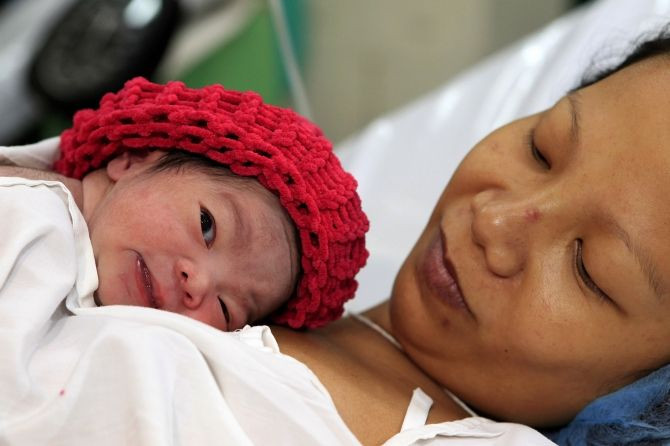Cesareans More Dangerous Than Previously Thought: 1 in 10 Women Develop Infections

Cesarean births should only be conducted only when absolutely necessary because the risk of infection is so high, experts warn.
A new study, published in the British Journal of Obstetrics and Gynecology, found that one in 10 women who have a baby by C-section go on to develop an infection around their scar that caused so much pain and discomfort, they were forced to stay longer or go back to the hospital for treatment.
Researchers said that not only are the complications distressing for the mother, they also interfere with the mother's ability to care for her baby.
Many midwives said that because of the risk of infection, cesareans should only be carried out in hospitals where there is "high clinical need."
Researchers found that overweight and teen mothers were particularly more likely to end up contracting an infection after cesarean birth.
Experts warn that while many of these infections followed by caesarean are minor, some infections are so severe that they end up affecting deep tissues or internal organs.
The study looked at data from 4,107 caesarean operations from 14 hospitals across England in 2009 and found that while 88 percent of the infections were minor, 25 women suffered from infection of the lining of the womb and two women had reproductive tract infections.
Researchers found that women who were overweight were 1.6 times more likely to develop an infection and obese women were 2.4 to 3.7 times more likely compared to women with normal weight.
Women under the age of 20 were almost twice as likely to develop an infection compared to women between the ages of 25 and 30.
“This study has identified high rates of surgical infection following a caesarean with one in ten women developing an infection," lead author Dr. Catherine Wloch, Department of Healthcare Associated Infection and Antimicrobial Resistance, Health Protection Agency said in a news release. "Whilst our study didn’t measure this, these infections are likely to have an impact on a woman’s experience and quality of life,"
“Prevention of these infections should be a clinical and public health priority,” she added.
“With the rise in numbers of women having a caesarean section and the rise in obesity rates, this issue is an important one," John Thorp, BJOG Deputy-Editor-in-Chief said in the news release.
"Post-surgical infection can seriously affect a woman’s quality of life at a critical time when she is recovering from an operation and has a new born baby to look after. More needs to be done to look into this and address ways of reducing infection,” he added.
Cesarean births are usually conducted when the women are expecting twins or triplets or mothers with high blood pressure or diabetes, in which a natural birth would put them at risk.
Published by Medicaldaily.com



























